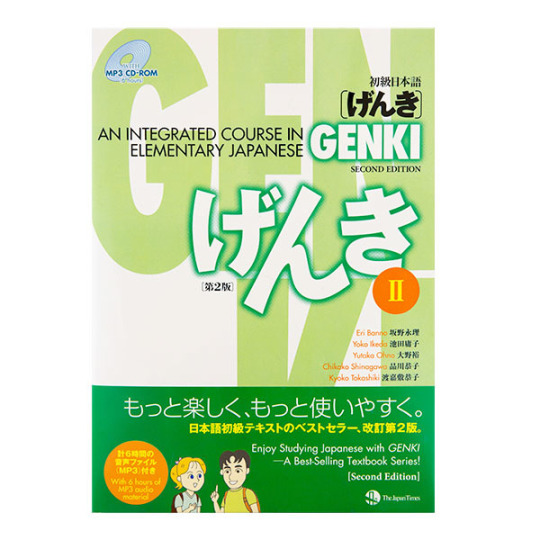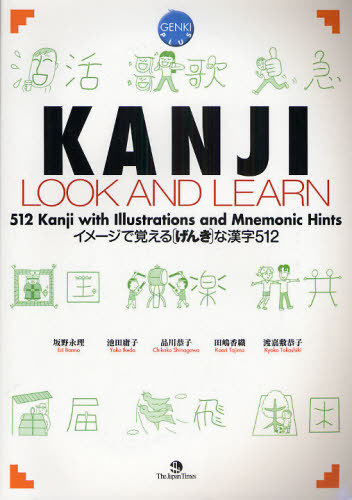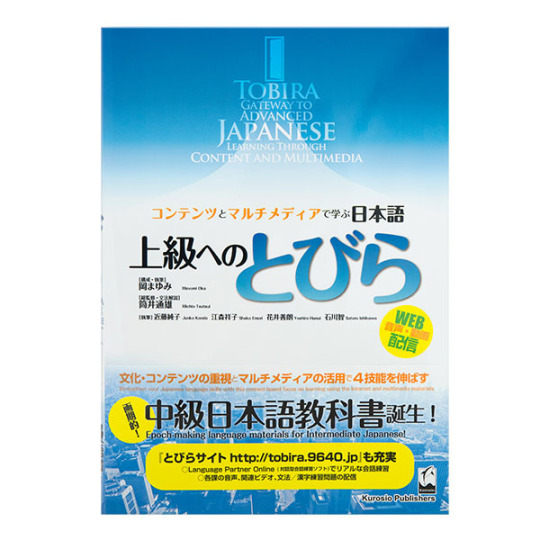#self study japanese
JLPT N3 Grammar - けど
Are you using it right??
Use this grammar point to instantly sound more native, and less robotic.
————-
Welcome to Benkyogo!
In our ぶんぽうご Real Japanese Grammar series, Nani and Mani are deep diving into the textbook grammar required for the JLPT, throwing out the stuff you’ll never use, and teaching you how to speak authentically whilst expressing your own personality.
⭕️ You WILL:
- Understand grammar in real life context- Be told when and where to forget the BS - Get to listen to 2 random people free-talking about Japanese grammar
❌ You WON’T:
- Sound boring when talking to your Japanese friends - Say anything rude to your Japanese boss - Speak like you’re fresh outta your favourite anime
We don’t claim to be experts, we’re just 2 Japanese speakers (one native, one second language) chatting about the DO’s and DON’T’s of Japanese grammar in the 21st century. Keep up, textbooks!!
————-
Check out https://benkyogo.co.uk/ for detailed hints, tips and resources to self-study Japanese.
⛩Check out our store at https://www.etsy.com/shop/benkyogo
JLPT N5 Grammar - てください
Are you using it right??
How do you ask someone to do something without sounding like a teacher? Hint: not like this!
————-
Welcome to Benkyogo!
In our ぶんぽうご Real Japanese Grammar series, Nani and Mani are deep diving into the textbook grammar required for the JLPT, throwing out the stuff you’ll never use, and teaching you how to speak authentically whilst expressing your own personality.
⭕️ You WILL:
- Understand grammar in real life context- Be told when and where to forget the BS - Get to listen to 2 random people free-talking about Japanese grammar
❌ You WON’T:
- Sound boring when talking to your Japanese friends - Say anything rude to your Japanese boss - Speak like you’re fresh outta your favourite anime
We don’t claim to be experts, we’re just 2 Japanese speakers (one native, one second language) chatting about the DO’s and DON’T’s of Japanese grammar in the 21st century. Keep up, textbooks!!
————-
Check out https://benkyogo.co.uk/ for detailed hints, tips and resources to self-study Japanese.
⛩Check out our store at https://www.etsy.com/shop/benkyogo
JLPT N1 Grammar - ぐるみ
Are you using it right??
Is a shady company conspiring to defraud innocent old ladies? Learn how to use the N1 grammar point ぐるみ in this episode of Bunpogo!————-
Welcome to Benkyogo!
In our ぶんぽうご Real Japanese Grammar series, Nani and Mani are deep diving into the textbook grammar required for the JLPT, throwing out the stuff you’ll never use, and teaching you how to speak authentically whilst expressing your own personality.
⭕️ You WILL:
- Understand grammar in real life context- Be told when and where to forget the BS - Get to listen to 2 random people free-talking about Japanese grammar
❌ You WON’T:
- Sound boring when talking to your Japanese friends - Say anything rude to your Japanese boss - Speak like you’re fresh outta your favourite anime
We don’t claim to be experts, we’re just 2 Japanese speakers (one native, one second language) chatting about the DO’s and DON’T’s of Japanese grammar in the 21st century. Keep up, textbooks!!
————-
Check out https://benkyogo.co.uk/for detailed hints, tips and resources to self-study Japanese.
⛩Check out our store at https://www.etsy.com/shop/benkyogo
JLPT N1 Grammar - ごとく・ごとく
Are you using it right??
In this episode we take a look at the JLPT N1 grammar ごとく/ごとき and what makes it different from our comfortable, 分かりやすい「のような・のように」…
————-
Welcome to Benkyogo!
In our ぶんぽうご Real Japanese Grammar series, Nani and Mani are deep diving into the textbook grammar required for the JLPT, throwing out the stuff you’ll never use, and teaching you how to speak authentically whilst expressing your own personality.
⭕️ You WILL:
- Understand grammar in real life context- Be told when and where to forget the BS - Get to listen to 2 random people free-talking about Japanese grammar
❌ You WON’T:
- Sound boring when talking to your Japanese friends - Say anything rude to your Japanese boss - Speak like you’re fresh outta your favourite anime
We don’t claim to be experts, we’re just 2 Japanese speakers (one native, one second language) chatting about the DO’s and DON’T’s of Japanese grammar in the 21st century. Keep up, textbooks!!
————-
Check out https://benkyogo.co.uk/ for detailed hints, tips and resources to self-study Japanese.
⛩Check out our store at https://www.etsy.com/shop/benkyogo
JLPT N4 Grammar - 後で(あとで)
Are you using it right??
In this episode we take a look at the JLPT N4 grammar ‘後(あと)で’. We find out why you should NEVER use this in business… and what to use instead.
————-
Welcome to Benkyogo!
In our ぶんぽうご Real Japanese Grammar series, Nani and Mani are deep diving into the textbook grammar required for the JLPT, throwing out the stuff you’ll never use, and teaching you how to speak authentically whilst expressing your own personality.
⭕️ You WILL:
- Understand grammar in real life context- Be told when and where to forget the BS - Get to listen to 2 random people free-talking about Japanese grammar
❌ You WON’T:
- Sound boring when talking to your Japanese friends - Say anything rude to your Japanese boss - Speak like you’re fresh outta your favourite anime
We don’t claim to be experts, we’re just 2 Japanese speakers (one native, one second language) chatting about the DO’s and DON’T’s of Japanese grammar in the 21st century. Keep up, textbooks!!
————-
Check out https://benkyogo.co.uk/ for detailed hints, tips and resources to self-study Japanese.
⛩Check out our store at https://www.etsy.com/shop/benkyogo
JLPT N2 Grammar - ということで
Are you using it right??
In this episode we take a look at the JLPT N2 grammar ‘ということは’. It’s a great phrase when you want to confirm what someone just said, or ask a question about some missing information. There are no Japanese subs in this video, as by N2 level you are expected to understand the content. But feel free to press CC for English subs during the tricky bits!
————-
Welcome to Benkyogo!
In our ぶんぽうご Real Japanese Grammar series, Nani and Mani are deep diving into the textbook grammar required for the JLPT, throwing out the stuff you’ll never use, and teaching you how to speak authentically whilst expressing your own personality.
⭕️ You WILL:
- Understand grammar in real life context- Be told when and where to forget the BS - Get to listen to 2 random people free-talking about Japanese grammar
❌ You WON’T:
- Sound boring when talking to your Japanese friends - Say anything rude to your Japanese boss - Speak like you’re fresh outta your favourite anime
We don’t claim to be experts, we’re just 2 Japanese speakers (one native, one second language) chatting about the DO’s and DON’T’s of Japanese grammar in the 21st century. Keep up, textbooks!!
————-
Check out https://benkyogo.co.uk/ for detailed hints, tips and resources to self-study Japanese.
⛩Check out our store at https://www.etsy.com/shop/benkyogo
JLPT N2 Grammar - ということで
Are you using it right??
In this episode we take a look at the JLPT N2 grammar ‘ということは’. It’s a great phrase when you want to confirm what someone just said, or ask a question about some missing information. There are no Japanese subs in this video, as by N2 level you are expected to understand the content. But feel free to press CC for English subs during the tricky bits!
————-
Welcome to Benkyogo!
In our ぶんぽうご Real Japanese Grammar series, Nani and Mani are deep diving into the textbook grammar required for the JLPT, throwing out the stuff you’ll never use, and teaching you how to speak authentically whilst expressing your own personality.
⭕️ You WILL:
- Understand grammar in real life context- Be told when and where to forget the BS - Get to listen to 2 random people free-talking about Japanese grammar
❌ You WON’T:
- Sound boring when talking to your Japanese friends - Say anything rude to your Japanese boss - Speak like you’re fresh outta your favourite anime
We don’t claim to be experts, we’re just 2 Japanese speakers (one native, one second language) chatting about the DO’s and DON’T’s of Japanese grammar in the 21st century. Keep up, textbooks!!
————-
Check out https://benkyogo.co.uk/ for detailed hints, tips and resources to self-study Japanese.
⛩Check out our store at https://www.etsy.com/shop/benkyogo
JLPT N3 Grammar - 的(てき)
Are you using it right??
In this episode we take a look at the JLPT N3 grammar ‘的 (てき)’ and discover how in the 1990’s a media personality with a very interesting Wikipedia page changed the usage of 的 forever…
————-
Welcome to Benkyogo!
In our ぶんぽうご Real Japanese Grammar series, Nani and Mani are deep diving into the textbook grammar required for the JLPT, throwing out the stuff you’ll never use, and teaching you how to speak authentically whilst expressing your own personality.
⭕️ You WILL:
- Understand grammar in real life context- Be told when and where to forget the BS - Get to listen to 2 random people free-talking about Japanese grammar
❌ You WON’T:
- Sound boring when talking to your Japanese friends - Say anything rude to your Japanese boss - Speak like you’re fresh outta your favourite anime
We don’t claim to be experts, we’re just 2 Japanese speakers (one native, one second language) chatting about the DO’s and DON’T’s of Japanese grammar in the 21st century. Keep up, textbooks!!
————-
Check out https://benkyogo.co.uk/ for detailed hints, tips and resources to self-study Japanese.
⛩Check out our store at https://www.etsy.com/shop/benkyogo
JLPT N4 Grammar - 始める(はじめる)
Are you using it right??
In this episode we take a look at the JLPT N4 grammar ‘V(stem)はじめる’. So, you started studying Japanese 3 years ago but just how do you tell people about it?
————-
Welcome to Benkyogo!
In our ぶんぽうご Real Japanese Grammar series, Nani and Mani are deep diving into the textbook grammar required for the JLPT, throwing out the stuff you’ll never use, and teaching you how to speak authentically whilst expressing your own personality.
⭕️ You WILL:
- Understand grammar in real life context- Be told when and where to forget the BS - Get to listen to 2 random people free-talking about Japanese grammar
❌ You WON’T:
- Sound boring when talking to your Japanese friends - Say anything rude to your Japanese boss - Speak like you’re fresh outta your favourite anime
We don’t claim to be experts, we’re just 2 Japanese speakers (one native, one second language) chatting about the DO’s and DON’T’s of Japanese grammar in the 21st century. Keep up, textbooks!!
————-
Check out https://benkyogo.co.uk/ for detailed hints, tips and resources to self-study Japanese.
⛩Check out our store at https://www.etsy.com/shop/benkyogo
JLPT N5 Grammar - 上手(じょうず)
Are you using it right??
Find out how to use 上手 and talk about what you’re good at without sounding like an ass.
Welcome to Benkyogo!
————-
In our ぶんぽうご Real Japanese Grammar series, Nani and Mani are deep diving into the textbook grammar required for the JLPT, throwing out the stuff you’ll never use, and teaching you how to speak authentically whilst expressing your own personality.
⭕️ You WILL:
- Understand grammar in real life context- Be told when and where to forget the BS
- Get to listen to 2 random people free-talking about Japanese grammar
❌ You WON’T:
- Sound boring when talking to your Japanese friends
- Say anything rude to your Japanese boss
- Speak like you’re fresh outta your favourite anime
We don’t claim to be experts, we’re just 2 Japanese speakers (one native, one second language) chatting about the DO’s and DON’T’s of Japanese grammar in the 21st century. Keep up, textbooks!!
————-
Check out https://benkyogo.co.uk/ for detailed hints, tips and resources to self-study Japanese.
⛩Check out our store at https://www.etsy.com/shop/benkyogo
JLPT N5 Grammar - 上手(じょうず)
Are you using it right??
Find out how to use 上手 and talk about what you’re good at without sounding like an ass.
Welcome to Benkyogo!
————-
In our ぶんぽうご Real Japanese Grammar series, Nani and Mani are deep diving into the textbook grammar required for the JLPT, throwing out the stuff you’ll never use, and teaching you how to speak authentically whilst expressing your own personality.
⭕️ You WILL:
- Understand grammar in real life context- Be told when and where to forget the BS
- Get to listen to 2 random people free-talking about Japanese grammar
❌ You WON’T:
- Sound boring when talking to your Japanese friends
- Say anything rude to your Japanese boss
- Speak like you’re fresh outta your favourite anime
We don’t claim to be experts, we’re just 2 Japanese speakers (one native, one second language) chatting about the DO’s and DON’T’s of Japanese grammar in the 21st century. Keep up, textbooks!!
————-
Check out https://benkyogo.co.uk/ for detailed hints, tips and resources to self-study Japanese.
⛩Check out our store at https://www.etsy.com/shop/benkyogo
X は Y で{有名だ/知られている} - X IS FAMOUS/KNOWN FOR Y
——————————————————————————————————
See all JLPT N4, N3, and N2 grammar revision points HERE
——————————————————————————————————Grammar 文法:
X は NOUN で {有名だ/知られている}
OR
X は SENTENCE (plain form*) こと で {有名だ/知られている}
- 有名だ = famous for, 知られている = known for
- The ‘plain form’ of a sentence is a sentence that ends in the dictionary form of a verb (e.g. 食べる), with noun/な-adjectives ending in だ (e.g. 学生だ or 静かだ), and with い adjectives ending with the final ‘い’ attached to the adjective (e.g. おいしい)
- 有名だ and 知られている can often be used interchangeably dependent on context.
Meaning 意味:This grammar point is used to express that ‘X’ (the topic of discussion) is famous for either a thing (noun) or a certain phrasal noun (e.g. having something, doing something, and so on).
Examples 例え:
ラスベガス は たくさんホテル がある こと で 有名です。
Las Vegas is famous for having many Hotels.
- Make sure you don’t forget ‘こと’ after a sentence when using this structure.
熊(bears) は 冬眠する(to hibernate) こと で 知られています。
Bears are known for hibernating.ロンドン は バッキンガム宮殿 で 有名です。
London is famous for Buckingham Palace.
- - - - - - - - - - - - - - - - - - - - - -
⛩ VisitBenkyogo.co.uk for more ways to learn Japanese
Watch Benkyogo on YouTube.
Benkyogo Store: https://www.etsy.com/uk/shop/Benkyogo
Post link
~ たがる/~ほしがっている - ACT LIKE/ACT LIKE YOU WANT TO DO SOMETHING/ACT LIKE YOU WANT SOMETHING
——————————————————————————————————
See all JLPT N4, N3, and N2 grammar revision points HERE
——————————————————————————————————Grammar 文法:
いadjective: ーい, +がる e.g. 怖い -> 怖がる
なadjective: ーな, +がる e.g. 静かな -> 静かがる
Verb (past た form) + がる
Noun を/が ほしがっている
- たがる (conjugated from たい - to want) and ほしがっている (from ほしい - to want an object) are used when describing when someone acts as if they want to do something (in the case of たがる) or want something specific e.g. an object (in the case of ほしがっている
Meaning 意味:This grammar point is used when you are guessing how someone is acting or what someone wants based purely on observation.
Say, for example, someone is grinning ear to ear. You could say ‘She’s acting like she’s happy right now!’. (幸せがる) [happy is an adjective]
In terms of wanting something, your girlfriend could be making hints at how much she loves roses near valentines day. You could use this to say ‘Boy, she’s really acting like shewants some roses for Valentines day!’ (X を/が ほしがっている) [when a specific object is wanted, use ほしがっている]Examples 例え:
彼 は 怖がる!
He’s acting all scared!
- 怖い is conjugated here, as we are talking about an adjective
彼女 は いつも 泳ぎたがる・・・
She always acts like she wants to go swimming…
- + たがる is used because it is the conjugated form of ‘泳ぎたい’ - want to go swimming. It’s a verbal action, not an adjective or specific object of desire.
妻 は ルイヴィトンのバッグ を ほしがっているんだけど、そんなもん、買えないでしょう!
My wife is acting like she wants a Louis Vuitton Bag, but I can’t afford things like that!
- + ほしがっている is used instead of たがる because we are talking about what she wants, not what she wants to do (using a verb).
⛩ VisitBenkyogo.co.uk for more ways to learn Japanese
Watch Benkyogo on YouTube.
Benkyogo Store: https://www.etsy.com/uk/shop/Benkyogo
Post link

Here are 5 essential textbooks to learn the Japanese language from beginner to intermediate level.
STARTING FROM SCRATCH: THE GENKI TEXTBOOK SERIES


The Genki textbooks are renowned for being some of the most accessible beginners textbooks for learning Japanese. They’re well laid out into different chapters, provide vocabulary and Kanji, and you can also acquire workbooks with CD’s that allow you to self-study.
The 23 lessons of Genki introduce students to a wide range of elementary grammar points, nearly 300 kanji, and over 1000 vocabulary terms, which makes this a fantastic starter textbook for learning Japanese.
EASY TEXTBOOK KANJI METHOD: LOOK AND LEARN

This accompanying Kanji book to the Genki textbooks is a great, simple method to learn Kanji through illustrations and mnemonics - little stories that help keep them in your brain. I find this method really successful compared to boring repetition-based Kanji textbooks that exist elsewhere.
The various indexes at the end of the book allow learners to easily look up a particular kanji or kanji vocabulary. The book contains 512 kanji, as well as 3,500 essential vocabulary for beginner and intermediate learners. The book includes all kanji in levels 3 and 4 of the Japanese Language Proficiency Test (JLPT), as well as all kanji in the Genki textbooks.
MOVING ON TO INTERMEDIATE: TOBIRA

When you’ve conquered the Genki textbook series (both I and II), it’s the perfect time to move on to Tobira. Tobira bridges the gap between Genki and advanced Japanese. Although the lessons are intense, with up to 100 vocabulary per chapter, the structure, layout and contents of the book are much more interactive than those in the Genki textbooks - simply because you have more knowledge to work with! The accompanying Kanji book is also brilliant to improve your Kanji recognition.
Tobira will make you realise you can finally read some intermediate Japanese, which Genki doesn’t push you to do.
GRAMMAR: DICTIONARIES OF JAPANESE GRAMMAR

This set of grammar textbooks is known to be the most comprehensive and useful set around. The catch comes with the price - over £100 for the set (a cheaper alternative is listed below).
These dictionaries explain grammar points in terms of how to use them, the differences between one grammar point and other similar ones, and provides many examples in Japanese. A great review of the series can be found on Tofugu, here.
GRAMMAR: WHEN AND HOW? DONNA TOKI DŌ TSUKAU

A cheaper alternative to the grammar textbook series above, the Donna Toki textbook categories grammar points alphabetically, but also includes what JLPT level they would be found in. For this reason, it’s great for learners who are studying for the JLPT.
You can use this supplementary to your main textbooks for more example sentences and explanations. It also includes Chinese and Korean translations.
—————
Folllow Benkyogo on YouTube!
⛩️Check out the Benkyogo Store!
04.08/2015 (02:05 AM): Night time study session. Hiragana and katakana stroke orders.
Night time mood: Oh Wonder - Livewire
Post link
Hi everyone!
Our names are Yu and Clare, and we are a Japanese/Australian engaged couple. This is the first ever post on our brand new blog!
This blog will be all about learning the Japanese language as well as culture, history and etiquette. We’ll try our very best to teach you things that your text books won’t teach you, so you’ll be 100% prepared for your trip to Japan or your studies!
Please bear with us whilst we start up our blog (it’s a little plain at the moment)! We’ll update this blog 1 - 2 times a week with language tips, tricks and tidbits as well as facts about Japanese etiquette, history and culture!
Our mascots, Yu-keshi and Ku-keshi will guide you through our posts, and assist you with your language studies!
Meet our mascots:

This is us:

Feel free to ask us anything about Japanese study tips or things about Japan!
Be sure to give us a follow if you’re interested in learning Japanese, or if you’re looking to expand your language skills! <3



